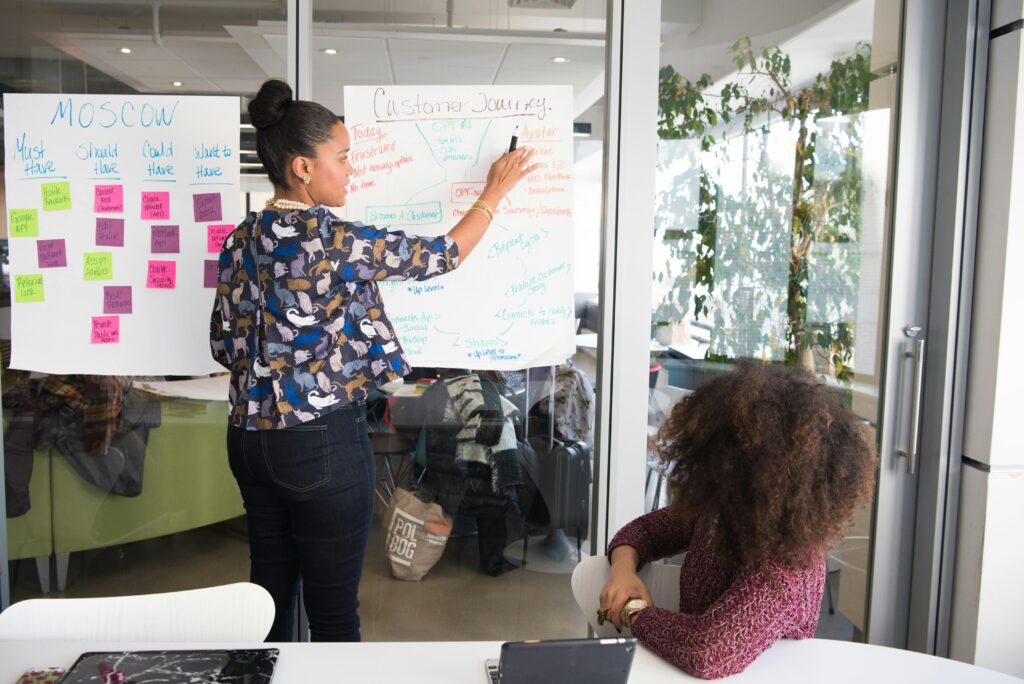Professional development in the nonprofit sector is crucial for maintaining organizational effectiveness and achieving long-term goals. As a nonprofit leader, you may often wonder, “How can I ensure my team is growing professionally while advancing our mission?”
To achieve sustainable growth, nonprofits must embrace professional development as an ongoing, strategic priority.
In this article, we’ll explore best practices for nonprofit professional development, how to implement them effectively, and their impact on team morale and organizational success.
A Detailed Explanation of Nonprofit Professional Development
Professional development involves equipping individuals with the knowledge, skills, and tools to excel in their roles. For nonprofits, this isn’t just a nice-to-have—it’s essential for navigating challenges such as limited resources, donor fatigue, and increased competition.
Here are actionable practices to enhance your nonprofit’s professional development strategy:
Identify Skills Gaps
Does your team have the expertise to achieve its goals? Start by assessing current skills versus required skills.
- Conduct a skills audit: Survey your team to identify areas needing improvement.
- Use performance reviews: Spot trends in areas where additional training could benefit the organization.
Prioritize Continuous Learning

Nonprofits face unique challenges, so staying updated on trends, tools, and techniques is vital.
- Encourage self-paced learning: Provide access to online nonprofit courses, such as fundraising strategies, donor management, and volunteer engagement.
- Host regular training sessions: Bring in experts to cover specific topics relevant to your mission.
Foster Leadership Development
Strong leadership drives nonprofit success. Cultivating leadership potential at all levels ensures your organization remains resilient.
- Mentorship programs: Pair emerging leaders with experienced mentors.
- Leadership workshops: Focus on topics like decision-making, conflict resolution, and strategic planning.
Leverage Technology
Modern tools can streamline your efforts to develop your team.
- Learning management systems (LMS): Platforms like Moodle or TalentLMS help track and deliver training programs.
- Webinars and virtual courses: Use digital platforms to access cost-effective and scalable professional development resources.
Invest in Team Bonding

Professional growth isn’t just about technical skills—it’s also about fostering a collaborative environment.
- Team-building activities: Strengthen trust and communication through retreats or collaborative exercises.
- Peer-to-peer learning: Encourage knowledge sharing between team members.
Building a Culture of Professional Development
How do you make professional growth a part of your organization’s DNA?
Align Development with Mission
Link training and development to your nonprofit’s goals.
- Communicate benefits: Show how professional growth contributes to personal fulfillment and organizational impact.
- Use case studies: Share stories of nonprofits that achieved more significant impact through development initiatives.
Secure Stakeholder Buy-In

Leadership and board support are critical for a successful program.
- Show ROI: Highlight how development investments improve operational efficiency, donor engagement, and overall results.
- Create champions: Identify team members who can advocate for professional development.
Recognize and Reward Growth
Motivate your team by celebrating their development efforts.
- Public acknowledgment: Highlight achievements in newsletters or team meetings.
- Professional growth awards: Provide certificates or bonuses for completing courses or mastering new skills.
The Role of Nonprofit Courses in Professional Development
Nonprofit courses are a cornerstone of professional development. These tailored learning opportunities offer practical knowledge and strategies specific to the sector.
Types of Courses to Consider
- Fundraising and Donor Management
Learn techniques to attract and retain donors while crafting compelling fundraising campaigns. - Volunteer Management
Master the art of recruiting, engaging, and retaining dedicated volunteers. - Grant Writing
Develop skills to craft persuasive grant proposals and secure funding. - Leadership Development
Enhance decision-making, communication, and organizational strategy skills. - Digital Marketing
Learn SEO, social media, and email marketing tailored for nonprofit success.
How to Select the Right Courses

Choosing the right nonprofit courses is essential to ensure the best return on investment.
Evaluate Organizational Needs
- Focus on gaps: What skills are missing from your team?
- Align with goals: Ensure courses align with current projects or future initiatives.
Assess Course Quality
- Look for expert instructors: Seek out courses taught by experienced nonprofit professionals.
- Read reviews: Check testimonials from past participants.
Consider Budget Constraints
- Use free resources: Many platforms offer free or low-cost nonprofit courses.
- Leverage grants: Apply for professional development grants to subsidize costs.
Measuring the Impact of Professional Development

How can you tell if your efforts are paying off?
Track KPIs
- Team performance: Compare productivity before and after training.
- Retention rates: Are team members staying longer after development programs?
- Donor engagement: Track improvements in donor acquisition or retention metrics.
Gather Feedback
- Post-training surveys: Understand what participants found valuable or lacking.
- One-on-one meetings: Discuss professional growth with individual team members.
Overcoming Common Barriers to Nonprofit Professional Development

Many nonprofits struggle to prioritize professional development due to limited budgets or time constraints. Here’s how to overcome these challenges:
Budget Constraints
- Free courses: Platforms like Coursera and Khan Academy offer free nonprofit-specific training.
- Shared resources: Partner with other organizations to host joint training sessions.
Time Limitations
- Microlearning: Offer short, focused sessions instead of full-day workshops.
- Flexible schedules: Provide access to recorded webinars and self-paced courses.
Resistance to Change
- Communicate value: Emphasize how professional growth benefits both individuals and the organization.
- Involve the team: Include team members in planning development initiatives.
How Africads Consultants Can Help
At Africads Consultants, we specialize in empowering nonprofits across Africa with tailored professional development solutions.
Comprehensive Nonprofit Courses
- Google Ads Grant Management
Learn to maximize free advertising opportunities. - Data Storytelling
Transform raw data into compelling narratives that inspire action. - SEO for Nonprofits
Boost your online presence and attract more supporters.
Personalized Development Plans
We assess your organization’s unique needs and create customized training programs to address them effectively.
Affordable and Accessible Solutions
With a focus on cost-effective learning, our courses ensure maximum value for every nonprofit, regardless of size.
FAQs
1. Why is nonprofit professional development important?
It helps build a skilled workforce, improves organizational effectiveness, and enhances team morale.
2. What are nonprofit courses?
Nonprofit courses are specialized training programs covering topics like fundraising, leadership, and digital marketing.
3. How can I fund professional development?
Seek grants, partnerships, or free online resources to reduce costs.
4. What’s the best way to measure training success?
Track KPIs, gather feedback, and monitor team performance over time.
5. How often should nonprofits invest in training?
Regularly update training plans to align with organizational goals and industry trends.
6. Are online courses effective for nonprofits?
Yes, they are cost-effective, flexible, and accessible to remote teams.
7. How do I overcome team resistance to training?
Involve your team in planning and clearly communicate the benefits of professional development.
8. What is microlearning?
Microlearning involves short, focused training sessions that fit into busy schedules.
9. Can small nonprofits afford professional development?
Yes, free or low-cost options are available, and grants can help cover expenses.
10. How can Africads Consultants assist my nonprofit?
We provide tailored courses, expert guidance, and affordable solutions to meet your professional development needs.
Investing in nonprofit professional development is one of the best decisions your nonprofit can make to achieve its mission. By following the best practices outlined here, you’ll create a more skilled, motivated, and effective team.
Ready to transform your nonprofit with professional development? Africads Consultants is here to guide you every step of the way. Start your journey today!






